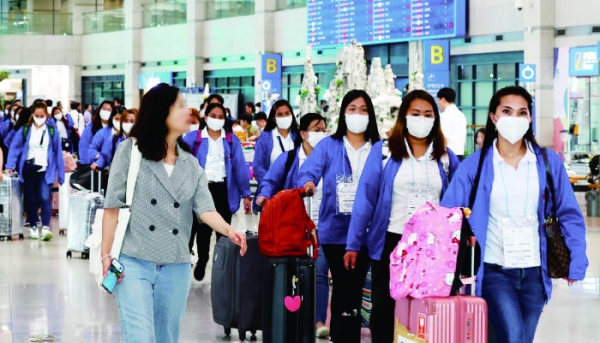
Since September, Seoul has launched a pilot program introducing Filipino domestic workers into households across the city. This initiative is part of Seoul’s efforts to address South Korea’s unprecedented low birth rate crisis while tackling challenges arising from rapid aging and a shrinking care workforce.
Even before the introduction of foreign domestic workers, foreign laborers played a significant role in Korean society. Currently, the number of foreigners residing in Korea has reached a record high of 2.68 million, with 920,000 holding employment visas as of 2023. These workers contribute significantly to manufacturing, construction, agriculture, fishing, and services sectors, often avoided by local workers. To address the domestic labor shortage, the government has expanded the range of industries eligible to hire foreign workers this year, allowing employment in fields like food service, mining, and forestry. Foreign workers have become indispensable in alleviating labor shortages, with a noticeable increase in businesses and industries that would struggle to operate without their contributions. Consequently, the role of foreign labor in Korea’s economy continues to grow.
However, some believe the costs of bringing in foreign workers outweigh the economic benefits. This is because the government and companies must spend a lot on insurance and unemployment benefits to support them. For example, in 2023, unpaid taxes by foreign workers reached 40 billion KRW, showing the burden on the country and its people. Also, health insurance for foreign workers is mostly paid for by taxes from Korean citizens, raising concerns about fairness.
Can foreign workers fundamentally resolve issues like low birth rates, aging populations, and labor shortages? Experts say that government measures relying on foreign labor are not fundamental solutions. It is essential to address the root causes by implementing policies that support work-life balance, stabilize housing prices, and provide quality jobs. Foreign workers are seen as a short-term and cost-effective solution rather than a lasting fix. Lee Jong-gwan, a professor of economics at Yonsei University, stated, “It is difficult to address all problems stemming from population shortages solely through the influx of foreign workers.”


